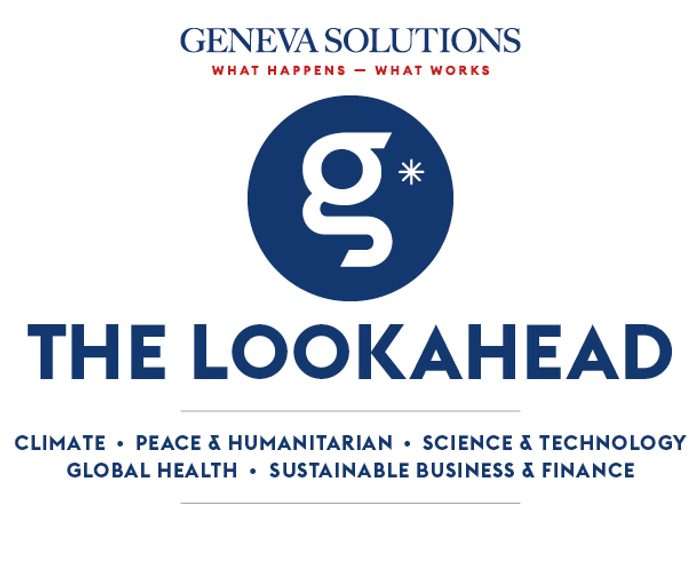Good morning, this is Michelle. As hostilities between Israel and Hezbollah intensify, killing scores of civilians in Lebanon, UN aid groups are bracing for a Gaza-like bloodbath if a ceasefire isn’t reached soon.
Lebanon doesn’t rule out bringing up the issue at the Human Rights Council in Geneva, currently in session. UNRWA chief Phillippe Lazzarini is also in town today to brief ambassadors about the situation of Palestinians in the occupied territories. The Palestinian aid agency provides support for some 200,000 Palestinian refugees in Lebanon.
In other news, one of the world’s leading collaborative research organisations celebrates its 70th anniversary today. |

People inspect damaged buildings after Israeli raids on 25 September, in Saksakiyeh, southern Lebanon, 26 September 2024. (Keystone/EPA/Stringer)
|
|
|
🌌THE BIRTH OF A SCIENTIFIC UNIVERSE.
Seven decades ago, in September 1954, Cern officially came into existence. Europe was still recovering from the aftermath of the Second World War, and its once-eminent science laboratories were a shell of what they had been before the war. Despite the economic hardship in many European nations, a handful of scientists and politicians recognised the need to rebuild the continent’s science infrastructure and prevent “a brain-drain” of European physicists to the United States.
|
|
Leg-up from US.
Ironically, it was an American physicist, Nobel laureate Isidor Rabi, who was crucial in pushing for the creation of the European Council for Nuclear Research – Cern’s original name – at a Unesco meeting in Florence, Italy, in 1950. As a French diplomat involved in the early discussions recalled, one of the paradoxes was that the United Kingdom – now one of Cern’s largest funders – was initially reluctant to invest in the physics venture. “Also unusual was the fact that the US felt more strongly than Britain the need to strengthen European science, a major component of European culture,” the late François de Rose wrote in Nature magazine.
The UK finally ratified the Cern convention in 1953, joining the 11 other founding nations, Belgium, Denmark, France, the Federal Republic of Germany, Greece, Italy, the Netherlands, Norway, Sweden, Switzerland, and Yugoslavia. CERN’s first accelerator, which provided beams for early particle and nuclear physics experiments, was built in 1957.
|
|
Physics for peace.
Founded less than 10 years after the atomic bomb’s creation, Cern was seen as a sort of peaceful compensation for the bomb. Herwig Schopper, a former CERN director general who celebrated his 100th birthday in April, cites Rabi’s remarks on the centre’s 30th anniversary: “I mentioned Los Alamos and the atomic bomb, which is an expression of the power of [the] personalities [involved]. They are here now before you, and it is important to keep them occupied fulfilling the ideals of science….”
Rabi described Cern’s scientists as “guardians of this flame of European unity so that Europe can help preserve the peace of the world”. Forty years later, his hopeful statement feels just as pertinent, if not fragile, as growing conflicts test even the ideals of scientific cooperation.
– By Kasmira Jefford
|
|
|
GS news is a new media project covering the world of international cooperation and development. Don’t hesitate to forward our newsletter!
Have a good day!
|

|
|
Avenue du Bouchet 2
1209 Genève
Suisse
|
|
|
|








